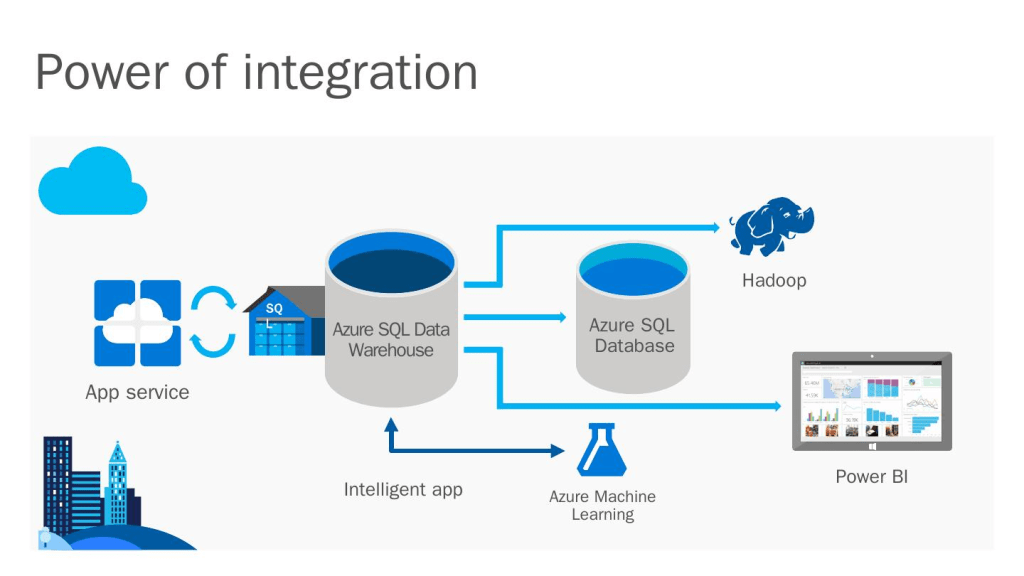The Edge of Cloud-Based Data Warehousing for Modern Businesses
Introduction
As businesses continue to generate more data than ever before, the need for an efficient, secure, and scalable data warehousing solution becomes increasingly crucial.
With the rise of cloud computing, many organizations are turning to cloud-based data warehousing as a viable option for storing and analyzing their data. In my first blog post, I will explore the advantages of cloud-based data warehousing and why it’s a smart choice for modern businesses.
Data Warehousing
A data warehousing application is a software system designed to help businesses and organizations to efficiently store, manage, and analyze large volumes of data. The main purpose of a data warehousing application is to provide a single, comprehensive view of all the data that a business collects from various sources, so that decision-makers can make informed decisions based on accurate and up-to-date information.
Cloud Based Data
Cloud-based data refers to any data that is stored and accessed through a cloud computing service. This data can include a wide range of information, such as documents, photos, videos, and databases. Cloud-based data is stored on remote servers owned and operated by third-party service providers, such as Amazon Web Services, Microsoft Azure, and Google Cloud.
Modern Businesses
Modern business refers to the use of advanced analytical tools and techniques to derive insights from large and complex data sets. Modern businesses use data analytics to gain a competitive advantage, optimize operations, and identify new opportunities for growth.
In today’s business landscape, data is the lifeblood of any successful organization. Companies generate massive amounts of data every day, and the challenge lies in storing, managing, and analyzing this data in a way that is both efficient and cost-effective. This is where cloud-based data warehousing comes in. In this blog, I will explore the advantages of cloud-based data warehousing for modern businesses.
First, let’s define what a data warehouse is. A data warehouse is a central repository of data that is used for business intelligence and analytics. It is designed to support the decision-making process by enabling organizations to consolidate data from various sources and provide insights into the organization’s operations. A cloud-based data warehouse, as the name suggests, is a data warehouse that is hosted in the cloud.
Now, let’s look at the advantages of using a cloud-based data warehouse for modern businesses.
Scalability:
One of the primary advantages of a cloud-based data warehouse is its scalability. Traditional data warehouses require significant investments in hardware and software, which can limit the organization’s ability to scale up or down based on changing business needs. With a cloud-based data warehouse, organizations can scale up or down as needed, and pay only for the resources they use.

Cost-Effectiveness:
Cloud-based data warehousing is also cost-effective. With cloud-based solutions, businesses don’t have to invest in expensive hardware, software, and IT infrastructure. Instead, they pay only for the storage and computing resources they need, which can significantly reduce costs. Additionally, cloud-based solutions often come with built-in tools for data integration, data transformation, and data analysis, eliminating the need for businesses to purchase additional software or hire specialized IT staff.
Let’s take an example of healthcare industry here:

Accessibility:
Cloud-based data warehousing also provides businesses with greater accessibility to their data. With traditional on-premises solutions, businesses often have limited access to their data, as it is stored on servers located within their own data centers. With cloud-based solutions, businesses can access their data from anywhere with an internet connection, making it easier for employees to collaborate and make informed decisions.

Security:
Cloud-based data warehousing also provides businesses with greater security. Cloud service providers have dedicated teams that focus on ensuring the security and integrity of their customers’ data. They often provide robust security features, such as data encryption, multi-factor authentication, and regular security audits, which can be difficult and expensive for businesses to implement on their own.

Conclusion
Cloud-based data warehousing offers many advantages for modern businesses, including scalability, flexibility, reduced costs, accessibility, collaboration, advanced analytics capabilities, and data security. With the increasing importance of data in today’s business environment, cloud-based data warehousing is becoming an essential tool for businesses looking to stay competitive and agile.
Add Comment
You must be logged in to post a comment.








